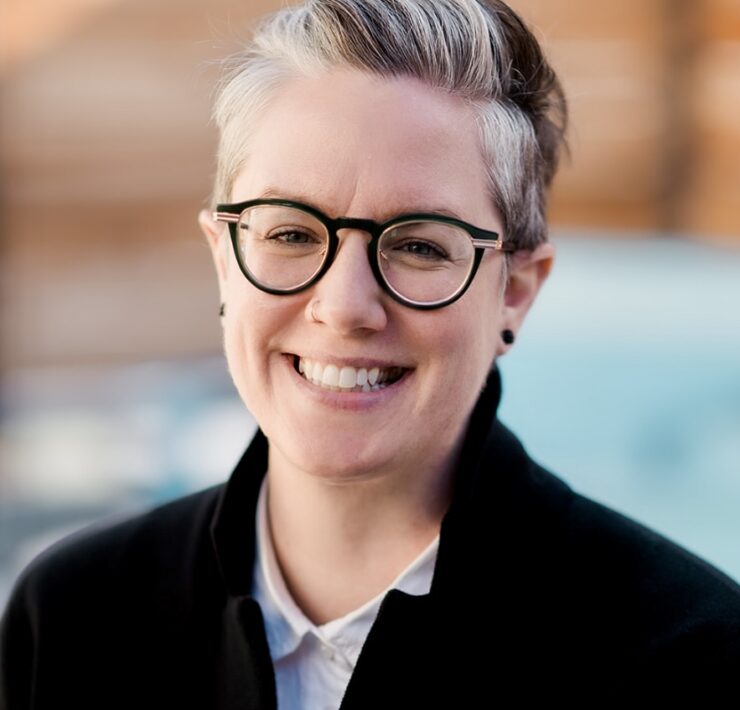Colorado AIDS agencies stop state from collecting clients’ identities

AIDS service providers in Colorado have succeeded in forestalling the implementation by the Colorado Department of Public Health and Environment of a client data tracking system that some believe would violate client privacy and potentially cripple services to people living with HIV/AIDS.

The state health department had wanted to institute a sweeping new data recording system called ARIES as of Oct. 1 so that all the state’s regional AIDS agencies would begin using it when they merged. But the heads of the Colorado AIDS Project, Northern Colorado AIDS Project, Southern Colorado AIDS Project and Western Colorado AIDS Project vehemently resisted the plan saying it would give the state too much access to confidential client records.
What’s at issue is the capability of the ARIES reporting system – now used in California and three other states – to put client case records including personal identifiers on CDPHE’s own computers. If a client confided to a caseworker he had problems with drug usage and the caseworker entered that statement into the record, the state health department would effectively be listening in, critics said. Concerns have been raised over who would see that information and what might they do with it.
While CDPHE still wants to use the ARIES system – which they say they need to meet federal reporting requirements – they have for the time being, relented. A modified reporting method has been instituted to provide client data while safeguarding privacy.
“We are not going to be using ARIES at this time,” said Ruth Pederson, interim exeutive director of the newly merged Colorado AIDS Project. “We understand that the state has federal reporting requirements but we must also protect the confidentiality of client records.”
She said that agencies have a database that enables them to upload data to meet CDPHE’s requirements.
Mary Beth Luedtke, head of WCAP, echoed Pederson’s comments.
“CDPHE has given concessions to use another database per federal guidelines reporting information without identifying clients.”
“We value client confidentiality and privacy,” she added. “We don’t take that lightly. We’ve worked hard to preserve that and I think we’ve done a good job of protecting it.”
Arthur Powers, longtime activist on HIV/AIDS issues and head of THRIVE: Persons Living with HIV/AIDS Initiative of Colorado, an advocacy organization, cautioned against the hopeful attitudes of the CAP directors.
“The department of health continues to seek extraordinary access to the most highly sensitive information about clients,” he said. “The EDs may be prepared to live with the document they’ve signed but we in THRIVE sure as hell are not prepared to live with what’s in this document.”
Indeed, CDPHE does not appear to be giving up much.
According to the revised contract amendment obtained by Out Front Colorado, “CDPHE will make the ARIES Internet-based data system available to funded Contractors. Unless permission is granted by CDPHE in writing to employ a different data system, which permission shall not be unreasonably withheld, all funded Contractors are required to utilize the CDPHE Internet-based data system.”
The document further states, “If funded contractors receive written permission to employ a different data system, data must be delivered to CDPHE in a format that can be readily imported into the ARIES system and must include all the data elements described in Section 8 of this Attachment.”
But for now, CDPHE says it will forego identifying reported data with client names.
“The strength of ARIES has created concerns,” said Bob Bongiovanni, manager of HIV Care and Treatment at CDPHE. “It is not only a data reporting system but a case management system in which you can enter a treatment plan and other data while meeting all federal reporting requirements.”
He said the present plan is to use ARIES without entering client identifying information.
The federal Health Resources and Services Administration (HRSA) administers all federal dollars for HIV care through the Ryan White Care Act. HRSA, said Bongiovanni, has been steadily increasing its demands for data.
It was never the intent of the state to intrude on the confidentiality of client information, Bongiovanni said.
“We’ve agreed there needs to be a wider conversation with community forums where people can speak their fears and can see what protections are in place.”
To Bongiovanni, the issue is “where to draw the line between efficiency and privacy concerns.”
Part of the issue that looms large for Powers and others is the claim by CDPHE that it owns all data collected by its contract agencies.
Powers thought that was a new demand by the state.
But, according to Ana Hopperstad, director of Boulder County AIDS Project – which has not yet seen any contract revision since it is not part of the CAP merger – language about the ownership of data “has been there forever.” It’s not a new demand but “something at the forefront now.”
Jeff Basinger, head of NCAP, confirmed that, saying, “The language has been in the contracts all along.”
Basinger supported the arrangement with CDPHE but saw problems on the horizon.
“There’s concern out in the community about things changing at the federal level (with more requirements for information). It’s inevitable. At that time we’ll have to look at best practices for protecting confidentiality,” he said.
Should HIV/AIDS service agencies ultimately refuse to comply with state or federal demands for client data, their budgets could be slashed. The current contract expires in March 2012 and those funds pay for most of the care staff at five sites across Colorado.
Negotiations between now and then will be closely watched.
Powers accused CDPHE of issuing an “ultimatum” to the agencies and employing “highly pressurized tactics” to get its way.
“We as a community will do everything we can do to prevent the department from gaining access to client data we feel they shouldn’t have,” he said.










